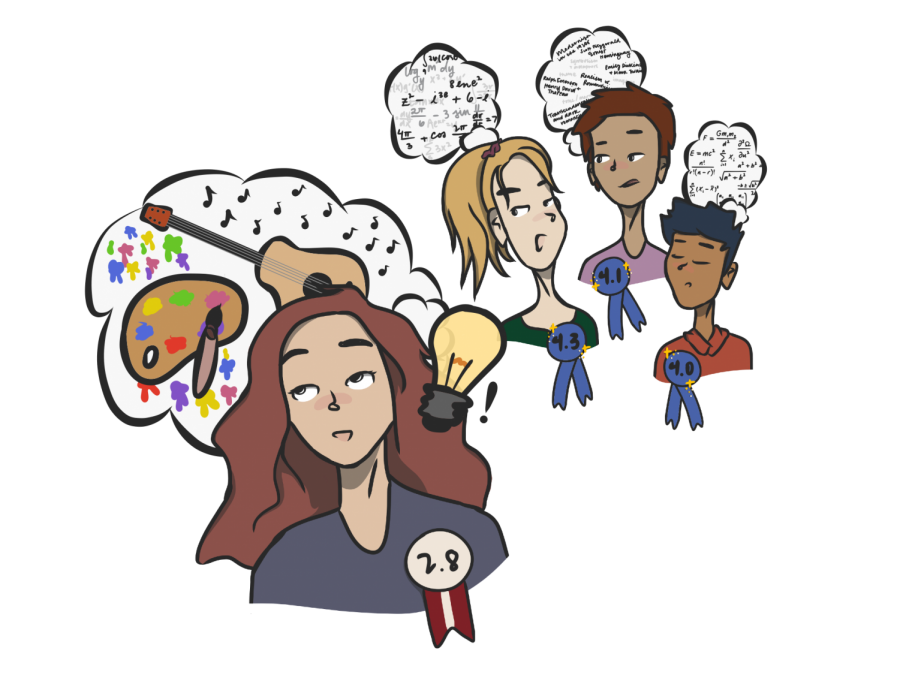Beyond a 1600
Real life does not concern a number like an IQ score or ACT result; students ought to learn skills beyond the classroom
The pressure to maintain a high GPA, perform well on the SAT or ACT and score high on AP tests is not unfamiliar to many Irvine students. In the classroom, it is easy as a student to direct one’s efforts towards memorizing terms and information solely to receive a coveted “A” on a test.
While many of us strive to pass classes with flying colors, we often fail to ask ourselves if focusing solely on these numbers is getting in the way of a fulfilling learning experience. By only mastering memorization and testing skills, we may be missing out on important aspects of the learning process.
The major emphasis placed on grades can be detrimental on several levels.
Students face tremendous amounts of stress in the midst of trying to maintain the most perfect of these numbers in order to get into a good college or get a scholarship.
Fast forward some years, and nobody will be judging you for your current GPA or ACT score. At that point, people will, however, be judging you for what your own values are. It is critical that we know what to prioritize.
The unfortunate fact is that students tend to forget the original intention of educational institutions because of the way courses are taught. The sheer memorization required of students by certain courses as well as the demands by colleges often overshadows the purpose of learning.
Instead of chasing after numerical values, students should learn to better themselves and society. Many educational institutions are recognizing the value of learning beyond the classroom and many schools, including Woodbridge, are working to incorporate real-world connections and life skills into some of their courses.
But changing the curriculum will not make much of an impact if students continue to attend school solely for a grade. We have to change our mindsets when we approach learning. Students should value knowledge for the purpose of becoming more informed, discerning and forward-thinking, not just as a tool to score well on an exam
While we are often told to select the “best answer” on tests, creativity is not often measured in these assessments. When students prioritize learning in order to take tests, they may fail to develop this important skill.The future leaders of the world aren’t necessarily the best test takers or memorizers. Look at the most innovative minds of human history, such as Edison, Ford, Einstein, and Darwin.
While a strong understanding of certain subjects was necessary for these leaders to succeed in their fields, it was just as critical for these individuals to think in ways that can’t be quantified with a numerical score. Students should instead learn to master creativity, critical thinking and other important skills that standardized tests don’t seem to encourage.
Life is not represented by a single number- a GPA, a SAT or ACT score. The various aspects of our life cannot be fully represented by the scores. The various scores will not matter and do not adequately represent the full spectrum of the problems we will face in real life.
Although testing is a critical and determining factor in one’s academic career, it is important to recognize the flaws in the system. We should strive to learn new skills, make connections and think creatively just as much as we strive to do well on tests. Do your best on tests, yes, but always stay mindful of the fact that there is value in learning beyond the score.
Your donation will support the student journalists of Woodbridge High School. Your contribution will allow us to purchase equipment and cover our annual website hosting costs.







